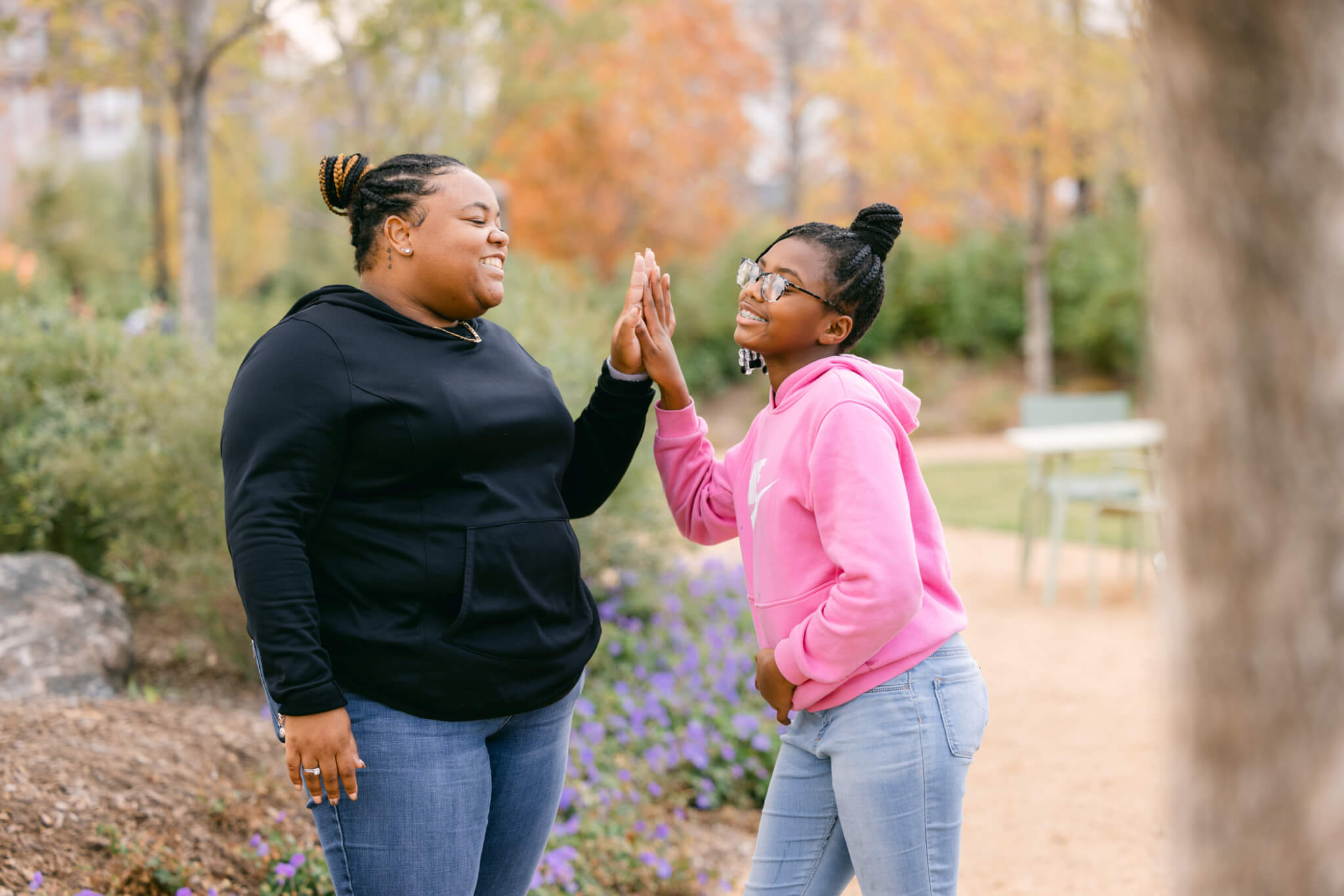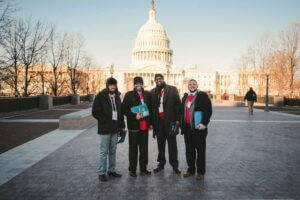FACT SHEET: New Cities Join My Brother’s Keeper Success Mentors Initiative to Combat Chronic Student Absences and Drive School and Life Success
This press release originally appeared on www.whitehouse.gov/the-press-office.
FOR IMMEDIATE RELEASE
Kevin Durant, Pierre Garçon, STATE Bags and Roc Nation Announce Support for MBK Success Mentors Initiative
The White House and the U.S. Department of Education announced today the names of the 20 new communities that have joined the My Brother’s Keeper (MBK) Success Mentors Initiative – for a total of 30 communities. The new communities are: Albuquerque, New Mexico; Baltimore, Maryland; Cleveland, Ohio; Dallas, Texas; Detroit and Flint, Michigan; Fresno, California; Hartford, Connecticut; Indianola, Texas; Jacksonville, Florida; Kansas City, Missouri; Los Angeles, California; Milwaukee, Wisconsin; Minneapolis, Minnesota; Oakland, California; Orlando, Florida; Pittsburgh, Pennsylvania; Portland, Oregon; Sacramento, California and the Pine Ridge Reservation.
MBK Success Mentors Initiative is a groundbreaking response to the challenge of chronic student absences in our country. It aims to reduce chronic absenteeism by connecting over one million students who are or at risk of becoming chronically absent with trained school-linked caring adults and near-peers over the next 3-5 years. The initiative is the nation’s first-ever effort to scale an evidence-based, data-driven mentor model to reach and support the highest risk students – using existing resources already linked to schools, and the early warning metric of chronic absenteeism to drive student success. The original ten cities that launched earlier this year include, Austin, Boston, Columbus, Denver, Miami-Dade, New York City, Philadelphia, Providence, San Antonio and Seattle. In the past five months, these 10 communities have supported more than 8,000 chronically absent students with success mentors.
New data from the Department of Education’s Civil Rights Data Collection, which collected student absenteeism rates for the first time, revealed that 6.5 million students—13 percent of all students—were chronically absent from schools in 2013-14. Other studies show frequent absences from school can be devastating to a child’s future. The effects start early and spiral dramatically over time. Children who are chronically absent in preschool, kindergarten, and first grade are much less likely to read on grade level by the third grade. Students who can’t read at grade level by the third grade are four times more likely to drop out of high school. By high school, regular attendance is a better dropout indicator than test scores. A student who is chronically absent in any year between the eighth and twelfth grade is seven times more likely to drop out of school.
STATE Bags, a buy one give one backpack brand, is announcing that it will donate 30,000 backpacks in the 30 MBK Success Mentors communities – and in partnership with Roc Nation – will engage artists and athletes in raising awareness of the importance of school attendance. These events will be led by child development specialists who have successfully risen from at-risk neighborhoods themselves, and serve as role model figures to the children served. For every STATE bag purchased from June 8 to September 8, one bag will be donated to students participating in the MBK Success Mentors initiative in the 30 communities.
Today, more than 200 leaders from the 30 MBK Success Mentors Cities will gather at the White House for a national training summit to prepare Success Mentor “Ground Troops” for the start of the school year. The summit participants will receive training in identifying and supporting students who are, or are at risk of becoming, chronically absent from school – to help them succeed.U.S. Secretary of Education John B. King, Jr., Kevin Durant, Pierre Garçon and STATE Bags’ Co-Founder, Scot Tatelman, will speak about the importance of mentorships that drive success in school and life. Durant also will announce that the MBK Success Mentors community that is the most successful in reducing student absenteeism over the next year will be the next location to benefit from the Kevin Durant Charity Foundation’s “Build It and They Will Ball” Courts Renovation Initiative.
The Extent of Chronic Absenteeism:
Chronic absenteeism, or missing at least ten percent of school days in the school year, or a month or more of school, excused or unexcused, is a leading cause of low achievement and a powerful predictor of which students will eventually drop out of school. These rates are highest in our low-income communities, where school offers the best opportunity out of poverty. Civil Rights Data Collection data released this week demonstrates the extent of the chronic student absenteeism challenge in our nation. The data show that 6.5 million students – 13 percent of all students – miss almost a month or more of school each year.
- More than 3 million high school students – or 18% of all high school students – are chronically absent.
- 20% or more of American Indian or Alaska Native (26%), Native Hawaiian or other Pacific Islander (25%), black (22%), multiracial (21%), and Latino (20%) high school students are chronically absent.
- High school students with disabilities served by IDEA are 1.3 times as likely to be chronically absent as high school students without disabilities.
- 20% of all English learner high school students are chronically absent.
- More than 3.5 million elementary school students – or 11% of all elementary school students – are chronically absent.
- American Indian or Alaska Native and Native Hawaiian or other Pacific Islander elementary school students are twice as likely to be chronically absent as white elementary school students.
- Black elementary school students are 1.4 times as likely to be chronically absent as white elementary school students.
- Elementary school students with disabilities served by IDEA are 1.5 times as likely to be chronically absent as elementary school students without disabilities.
The MBK Success Mentors Model:
MBK Success Mentors is the nation’s first-ever effort to scale an evidence-based, data-driven mentor model to reach and support the highest risk students. Mentors receive training to serve as motivators, problem solvers, connectors, and advocates, and help them form supportive relationships, identify and celebrate student’s strengths, promote their attendance every day, and connect them with the necessary supports to keep them on track and thriving. Mentors are typically assigned 3-5 students as mentees, and meet with students 3 times per week in school all year.
In the past five months, the original ten cities that launched the initiative have supported more than 8,000 chronically absent students with success mentors.
The MBK Success Mentor Partners:
MBK Success Mentors builds on the Every Student, Every Dayinteragency campaign to eliminate chronic absenteeism as part of the mandate of the President’s My Brother’s Keeper taskforce.
The effort also includes a national Ad Council parent engagement campaign to elevate the conversation about the devastating impact of chronic absenteeism, specifically targeting parents of K-8th grade students. It is currently being rolled out on billboards, bus kiosks, and social media nationwide to alert parents about the devastating impact of missing just 2 days a month of school, which totals a month of school missed.
This MBK Success Mentors model is supported by a public-private network which includes the following key U.S. Department of Education collaborators: Dr. Robert Balfanz of Johns Hopkins University’s Everyone Graduates Center, the Ad Council, the Arnold Foundation, Attendance Works, the Center for Supportive Schools, City Year, the Corporation for National and Community Service, MENTOR: The National Mentoring Partnership, United Way, the Mott Foundation, Roc Nation, STATE Bags, and Viacom’s Get Schooled.
About My Brother’s Keeper:
President Obama launched My Brother’s Keeper in February of 2014 to address persistent opportunity gaps faced by boys and young men of color and ensure that all young people can reach their full potential. In response to the President’s call to action, nearly 250 communities in all 50 states have accepted the President’s My Brother’s Keeper Community Challenge; more than $600 million in private sector and philanthropic grants and in-kind resources and $1 billion in low-interest financing have been committed in alignment with MBK; and new federal policy initiatives, grant programs, and guidance are being implemented to ensure that every child has a clear pathway to success from cradle to college and career.


